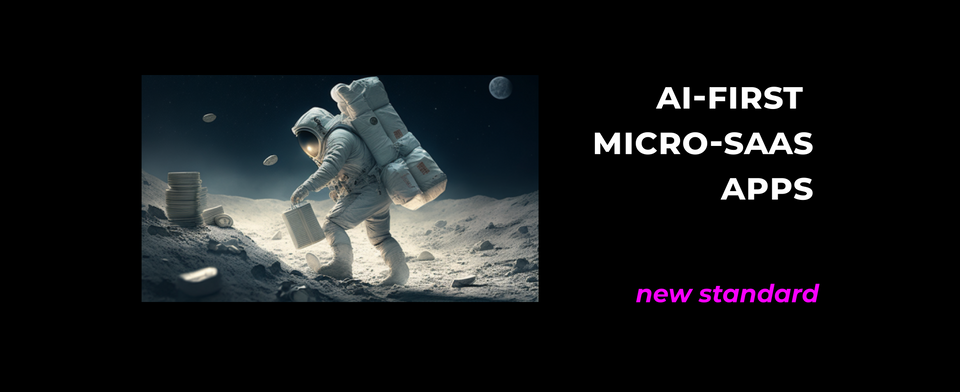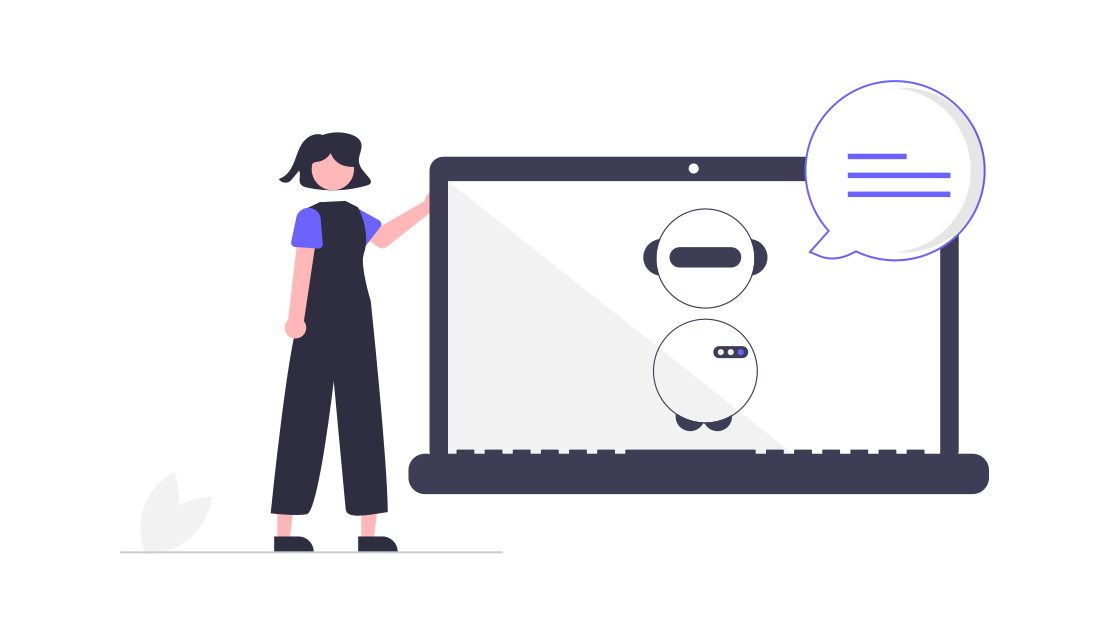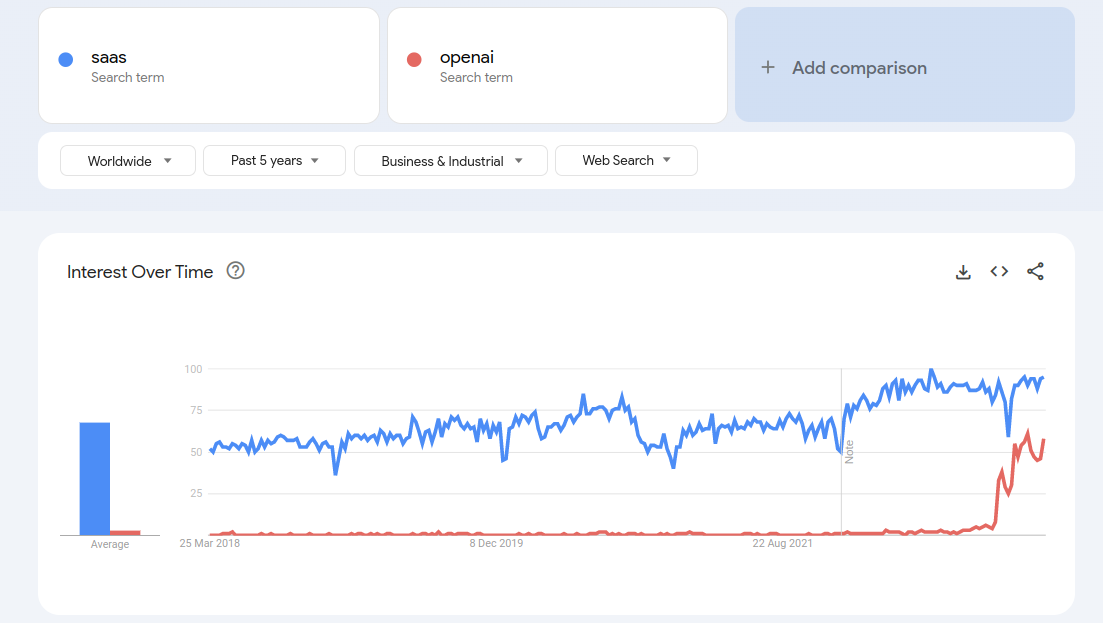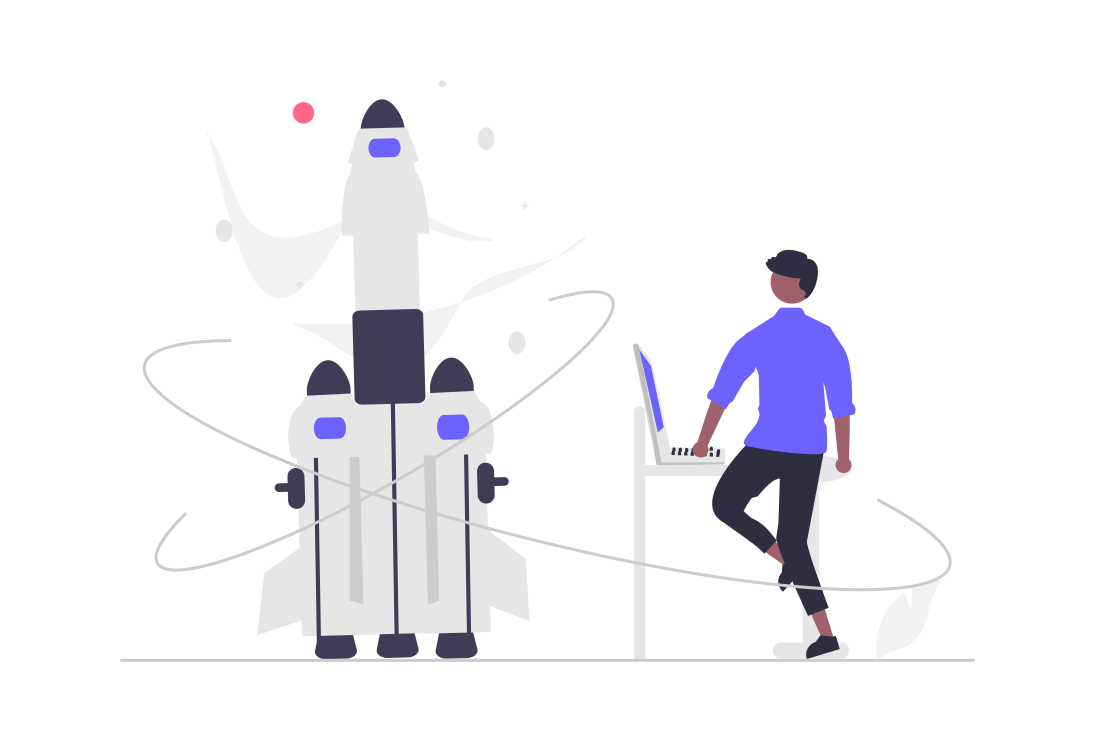AI-first: a new era for Micro Saas applications and tools

As we move towards a digital-first economy, the shift towards software as a service (SaaS) has become more evident with each passing year. The rapid growth of cloud technology, combined with the ongoing pandemic and implementation of remote working, has propelled SaaS to new heights.
Many businesses have moved their operations online, and software as a service has become the new norm, with companies offering a range of micro SaaS applications to meet specific business needs.
However, as these applications evolve and provide more capabilities and customization options, they are becoming more complex. As a result, companies are now turning to artificial intelligence (AI) to enable them to scale and reduce their workload.
AI is becoming the new norm for Saas applications: easily integrable, AI-powered Saas applications are becoming a de-facto Standard.
What is Micro SaaS, and why is AI relevant?
The term Micro-SaaS refers to small software applications that serve a specific business niche. Micro SaaS apps have a smaller scope than traditional SaaS apps and are created to solve specific problems (verticality) or address the needs of specific customers. The rise of Micro-SaaS applications results from the growing demand for niche business solutions, and the relatively low cost of development and marketing.
We have dedicated a whole previous blog post to the process of launching a successful Micro-Saas application. Today, those apps have a new requirement: provide some level of AI-generated content, AI-assisted guidance, or AI-powered decision-making processes.

AI is critical in the context of micro SaaS applications for several reasons. Firstly, it helps to automate and streamline various business processes. AI can be used to handle customer onboarding, reduce the workload of customer service teams, and even optimize business workflows. Secondly, AI can provide valuable insights and analytics that help to improve decision-making. They can also be widely used in the process of validating an idea or initial traction for your Saas.
The combination of AI and Micro SaaS offers tremendous benefits for entrepreneurs and small businesses. This statement is particularly true for the case of Solopreneurs: AI-powered Micro-Saas apps have the potential to help them move and ship faster.

Focus on AI Adoption for Micro Saas apps
Any Technological Adoption can be viewed from many points of view:
- from a technological point of view: users transition from using an old technology to using a new one.
- from a marketing/economical point of view: the more customers you have, the more traction you generate, and the more adoption you reach.
- from a psychological point of view: adoption can be viewed as the process of accepting a new entity.
Let's consider in our case AI-for-Saas Adoption from a marketing perspective. We'll be interested in revenue, customers, churn, and MRR metrics. Between 2015 and 2019, the number of companies using AI has grew by +270% (source Gartner). A projection of global AI adoption is expected it to expand by a 38% CAGR between 2022 and 2030, which is impressive.

AI adoption also leads to enhanced efficiency. Automation of routine tasks reduces the workload of employees, freeing them up to focus on more critical tasks. Micro SaaS apps that utilize AI technology can help businesses automate repetitive tasks like data entry, invoicing, and data analysis, thereby improving the operational efficiency of businesses.
The simplest way of adding AI to your Saas
AI Integration is now easier than ever. The simplest way of integrating AI to your Saas is basically to use an API.
Let's take an example from OpenAI. The basic steps to call the API are:
- Create an API Key. Your tokens consumption will be associated with your account thanks to this client key.
- Get a client snippet for making API calls to OpenAI.
import os
import openai
# Load your API key from an environment variable or secret management service
openai.api_key = os.getenv("OPENAI_API_KEY")
response = openai.Completion.create(model="text-davinci-003", prompt="Say this is a test", temperature=0, max_tokens=7)
3. Customize the snippet and play with different prompts.
Another way to add AI is to interact with application-specific applications and APIs. We have curated a list of our preferred Actionable AI Tools at Stimpack.
Key Benefits of using AI for Micro SaaS
There are several key benefits to using AI for micro SaaS applications, including:
- Improved Efficiency: AI-powered micro SaaS applications can help automate tedious, repetitive tasks, providing significant efficiency gains that help businesses scale.
- Enhanced Personalization: One of the defining features of micro SaaS applications is their ability to provide tailored solutions to specific business needs. AI can take personalization to a whole new level by analyzing user data and providing insights that help to improve user experience.
- Reduced Risk: AI can also help businesses reduce risk by providing predictive analytics and insights that help them make more informed decisions. By using machine learning algorithms, AI can identify potential risks and provide recommendations to mitigate them.
- Increased Creativity & Productivity: Generative AI provides a creative way to generate all forms of copywriting content: texts, posts, visual designs (using tools like Midjourney), and even code snippets and animated 3D content.
Launching Saas applications is hard. From idea validation, to initial traction, pre-launch, and launch, the execution required is prone to obstacles and requires high dedication and commitment. Using AI can highly improve the Launch Experience: that's what we bet on at Stimpack.

One of the major drawbacks of AI adoption has been its cost of implementation. However, it's no more the case today: a subscription to OpenAI GPT Plus costs $20/month.
Launching AI Tools is now cheap, leveraging the possibility to launch multiple AI/ML projects in parallel. The main barrier to entry is the expertise required to craft the right prompts: a new field called "Prompt Engineering" is now emerging and gaining momentum.

Challenges of AI Adoption
There are several challenges to adopting AI for micro SaaS applications, including:
- Data management: AI requires large sets of data to be effective. Smaller companies may not have access to the amount of data required to develop powerful AI solutions. A solution like ChatGPT or GPTv4 requires the user or client to maintain a context. By doing so, the number of tokens requires to satisfy a request is exponentially increasing
- Complexity (decreasing tough): AI is complex and requires a high level of expertise to develop and implement. Smaller businesses may lack the necessary in-house expertise.
- Privacy concerns: AI technology requires significant amounts of data to function effectively, which can lead to privacy and ethical concerns. To mitigate privacy and ethical concerns, businesses need to be transparent about data usage and adopt ethical practices when collecting data.
- Businesses have a preference for White-box models. Unfortunately, generative AI relies on Transformers which are basically improved neural networks. Those models make predictions that are quite hard to understand and decompose: they are seen as Black-box models.
Alongside the challenges cited above, some of the AI modern Saas applications raise concerns. Indeed Fake News prediction, Detecting AI-generated content, Enhancing privacy, and working on Plagiarism and Ethics are gaining a huge interest with the impressive AI adoption speed we are facing in 2023.
Rise of AI-powered Micro Saas Factories such as Stimpack
AI adoption for Micro SaaS apps presents tremendous opportunities for entrepreneurs and small businesses. The use of AI technology enables businesses to provide personalized experiences, enhance efficiency, and save costs. Launching Many Micro-Saas applications at the same time is now simple thanks to Saas Factories: Stimpack is the first of its kind, aiming builders and makers to gain traction and launch their next AI-powered Micro-Saas faster🚀
While AI adoption has several benefits, it also presents challenges to businesses, including cost and privacy concerns. Nonetheless, businesses integrating AI technology into their Micro SaaS apps stand to gain a competitive advantage over their competitors.
We have created Stimpack, the 1st all-in-one Saas platform conceived for product builders enabling you guys to launch your products, the fast and easy way! Interested in being part of the adventure? We are actively looking for core users to enroll in the Alpha.

Always looking forward to hearing from our fellow Stimpackers.
We are on social media,
Twitter: @StimpackHQ
Twitter: @SaidAitmbarek
Linkedin: linkedin.com/company/stimpack
Blog: blog.stimpack.io/
Saïd – Founder @Stimpack
